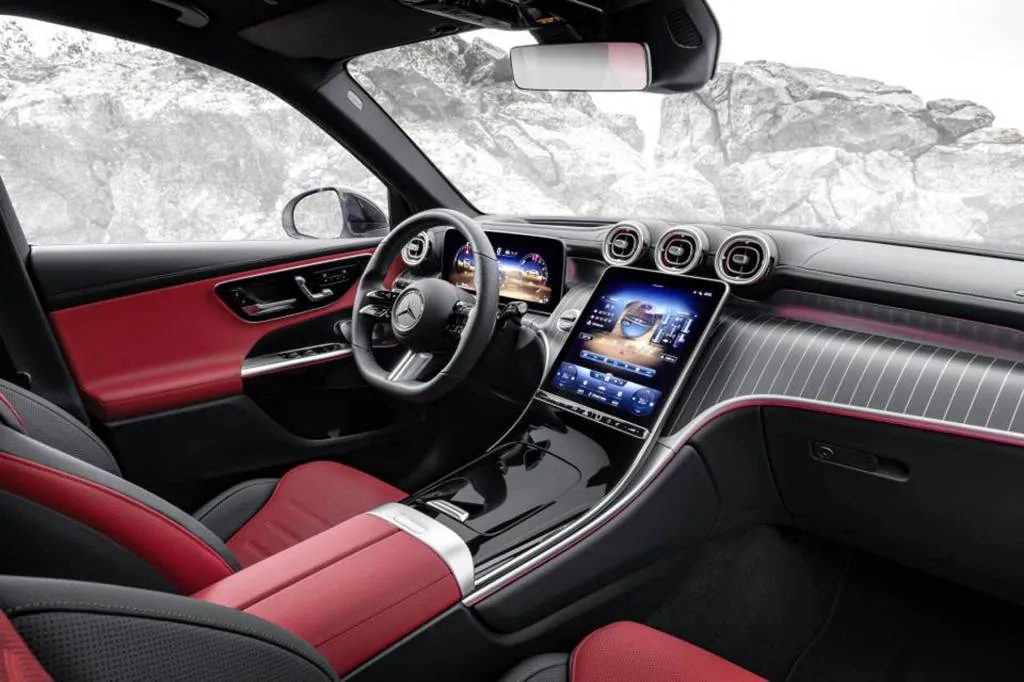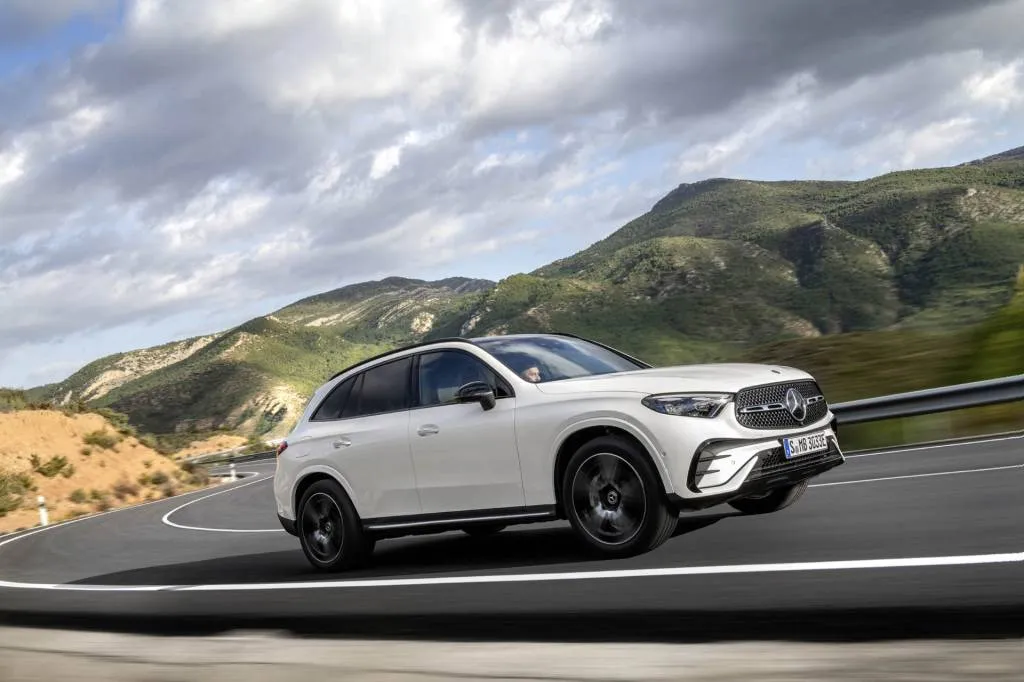A new plug-in hybrid version of the Mercedes-Benz GLC-Class crossover SUV is coming to the U.S. for the 2025 model year, the company confirmed this past week.
Called the GLC 350e, the plug-in hybrid is scheduled to reach showrooms in the second half of the year, with pricing to be announced closer to that time. It's based on the current-generation GLC-Class that arrived for the 2023 model year.
The powertrain combines a 2.0-liter turbo-4 engine with an electric motor for a combined output of 313 hp and 406 lb-ft of torque. This will get the GLC 350e from 0-60 mph in 6.6 seconds, according to Mercedes. The top speed is limited to 135 mph in hybrid mode and 87 mph in electric mode.

2025 Mercedes-Benz GLC-Class (GLC 350e)
A 24.8-kwh battery pack affords up to 81 miles of electric range, as measured on the European WLTP testing cycle. Expect the EPA number to be a bit lower.
The GLC 350e features both 11-kw AC charging and 60-kw DC fast charging, with the latter able to fully charge the pack in about 30 minutes, according to Mercedes. While Mercedes plans to adopt the Tesla North American Charging Standard (NACS) for its EVs, the GLC 350e continues with the Combined Charging Standard (CCS) port for now.
Notable standard features include a 12.3-inch digital instrument panel, 11.9-inch central touchscreen, wireless Apple CarPlay/Android Auto, digital key functionality, 64-color ambient lighting, and a self-leveling suspension.

2025 Mercedes-Benz GLC-Class (GLC 350e)
The GLC 350e isn't the only plug-in hybrid in the GLC-Class lineup. The AMG GLC 63 S E Performance also arrives in the U.S. for the 2025 model year, boasting 671 hp. But it's more about performance than efficiency. Both models will join a plug-in hybrid version of the larger GLE-Class that launched as a 2024 model.
Mercedes also reportedly plans to bring the EQC electric SUV to the U.S. in 2025, after after an aborted attempt in 2019—and subsequent delays—to bring the previous version. The automaker last month announced that it was delaying its EV targets, with internal-combustion models staying "well into the 2030s."












